Ancient Greek and Minoan Art: Neolithic to Archaic Periods
1/33
There's no tags or description
Looks like no tags are added yet.
Name | Mastery | Learn | Test | Matching | Spaced | Call with Kai |
|---|
No study sessions yet.
34 Terms
Frying Pan (Cycladic)
Terracotta ritual object from the Neolithic (ca. 2700-2200 BCE) with spiral and ship motifs; likely symbolic or ritual use (mirror? fertility?); shows early maritime identity.
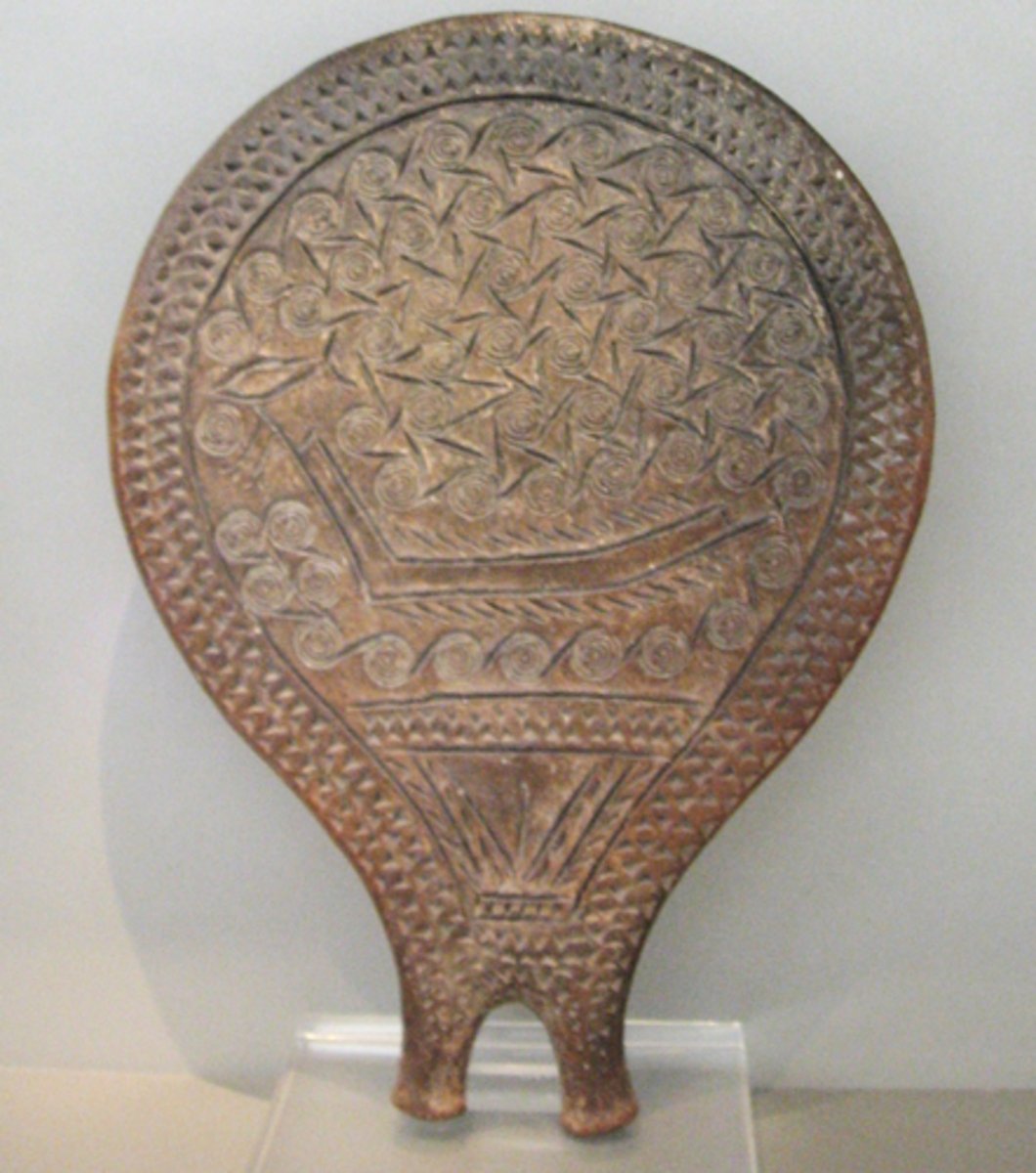
Folded Arm Figurines (FAF)
Marble figurines from the Early Bronze Age (ca. 2500 BCE); abstract female figures used for funerary purposes; early marble carving; minimalist Cycladic style.
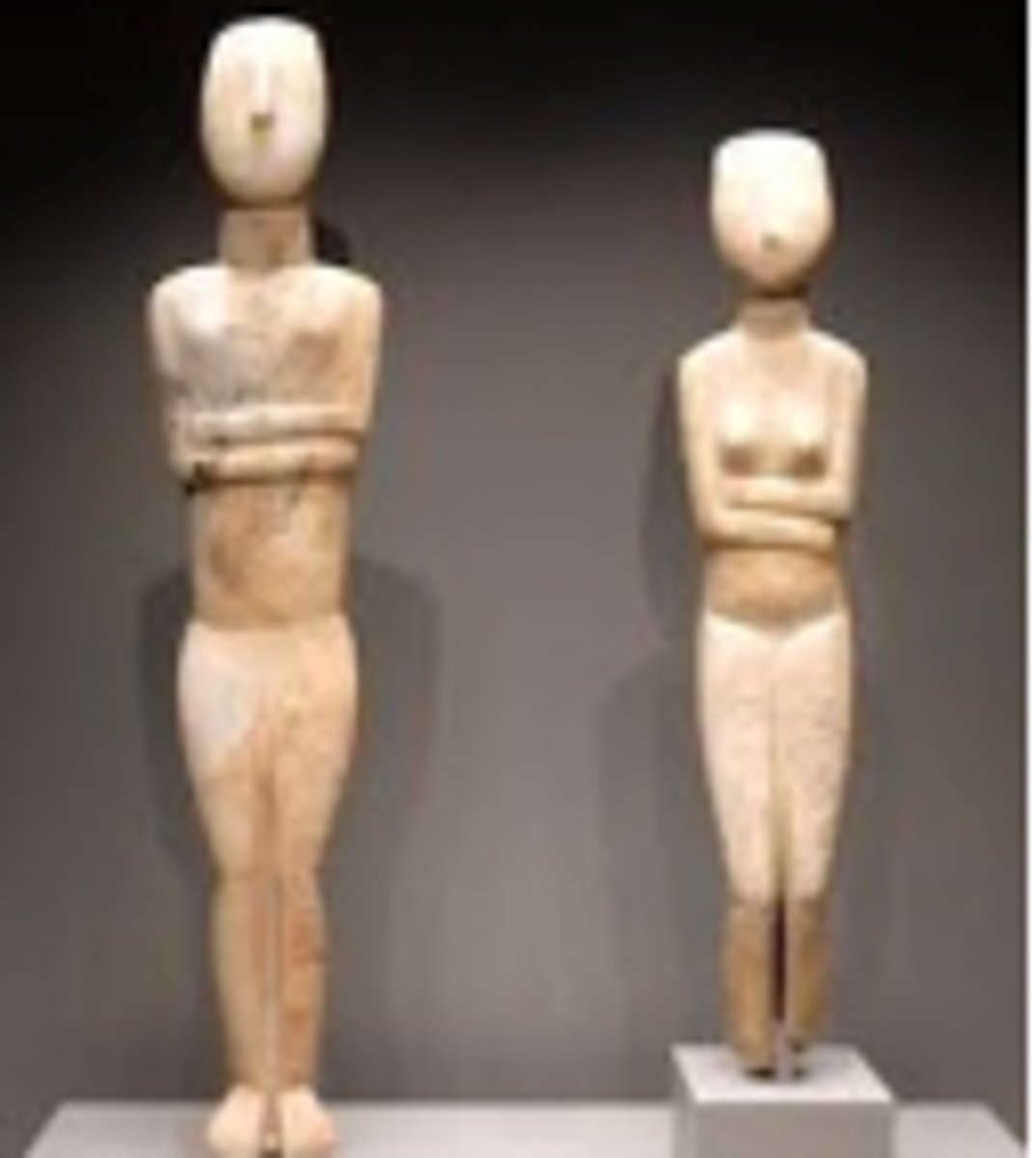
House of Tiles (Lerna)
Mudbrick + stone structure from the Middle Bronze Age (ca. 2500 BCE); corridor house indicating early centralized authority; possible administrative function; memorialized after destruction.
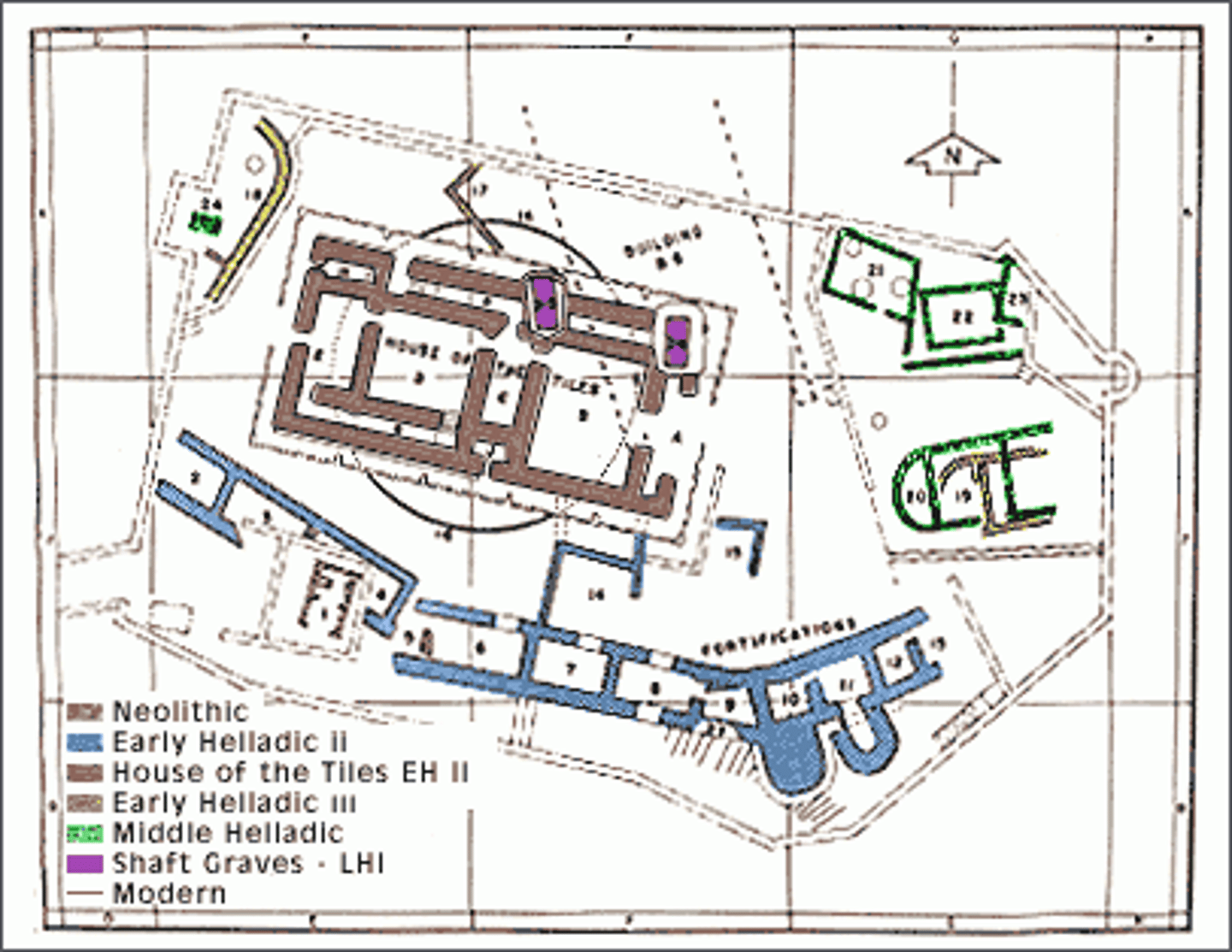
Kamares Ware Vessels
Painted ceramic from the Middle Bronze Age (ca. 2000-1700 BCE); polychrome pottery (bright on dark); thin-walled luxury ware showing Minoan palatial refinement.
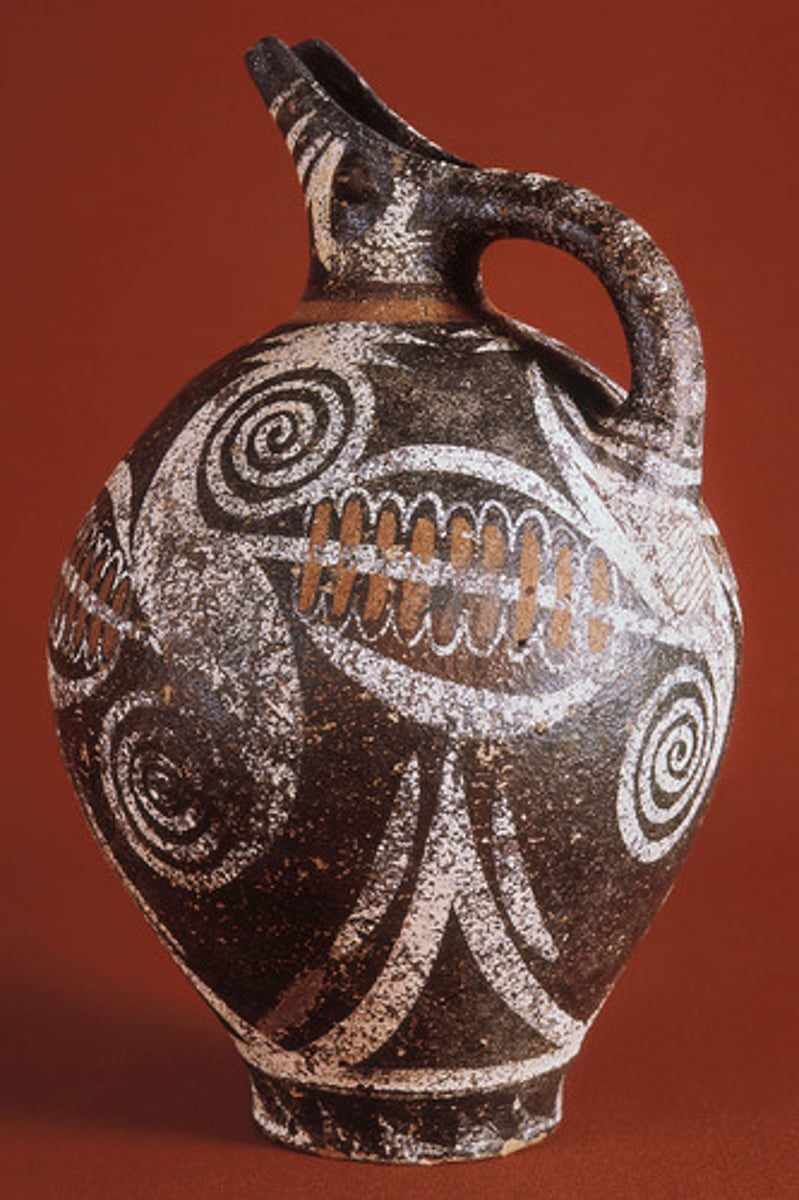
Phaistos Disk
Fired clay object from the Middle Bronze Age (ca. 1700 BCE); features spiral pictographs; represents an early writing experiment; possibly ritual use; unique movable-type stamping.
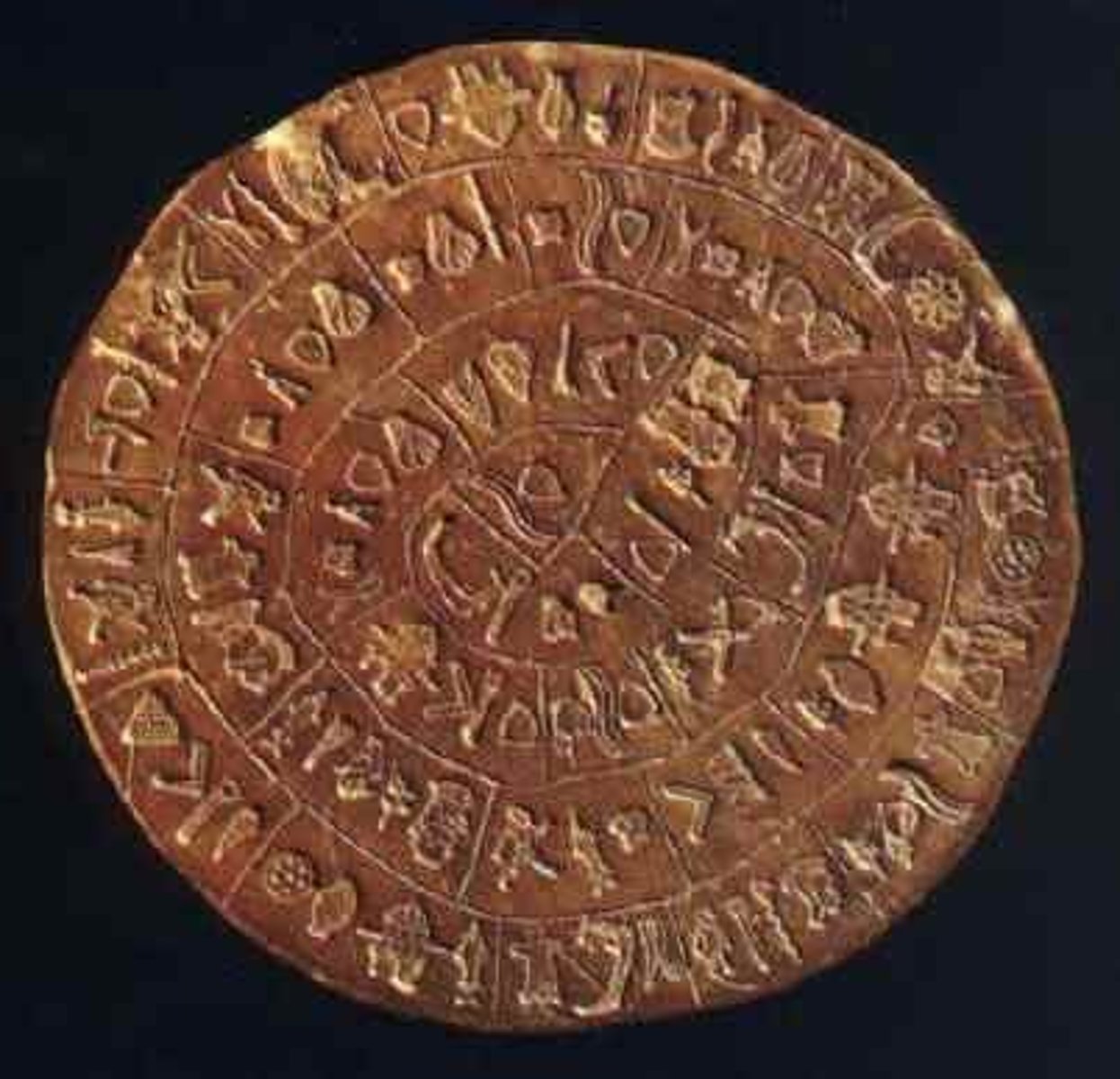
Knossos Palatial Complex
Stone, wood, and fresco structure from the Late Bronze Age (ca. 1700-1400 BCE); multi-story, labyrinthine; center of Minoan political/religious life; includes frescoes, light wells, and storage systems.
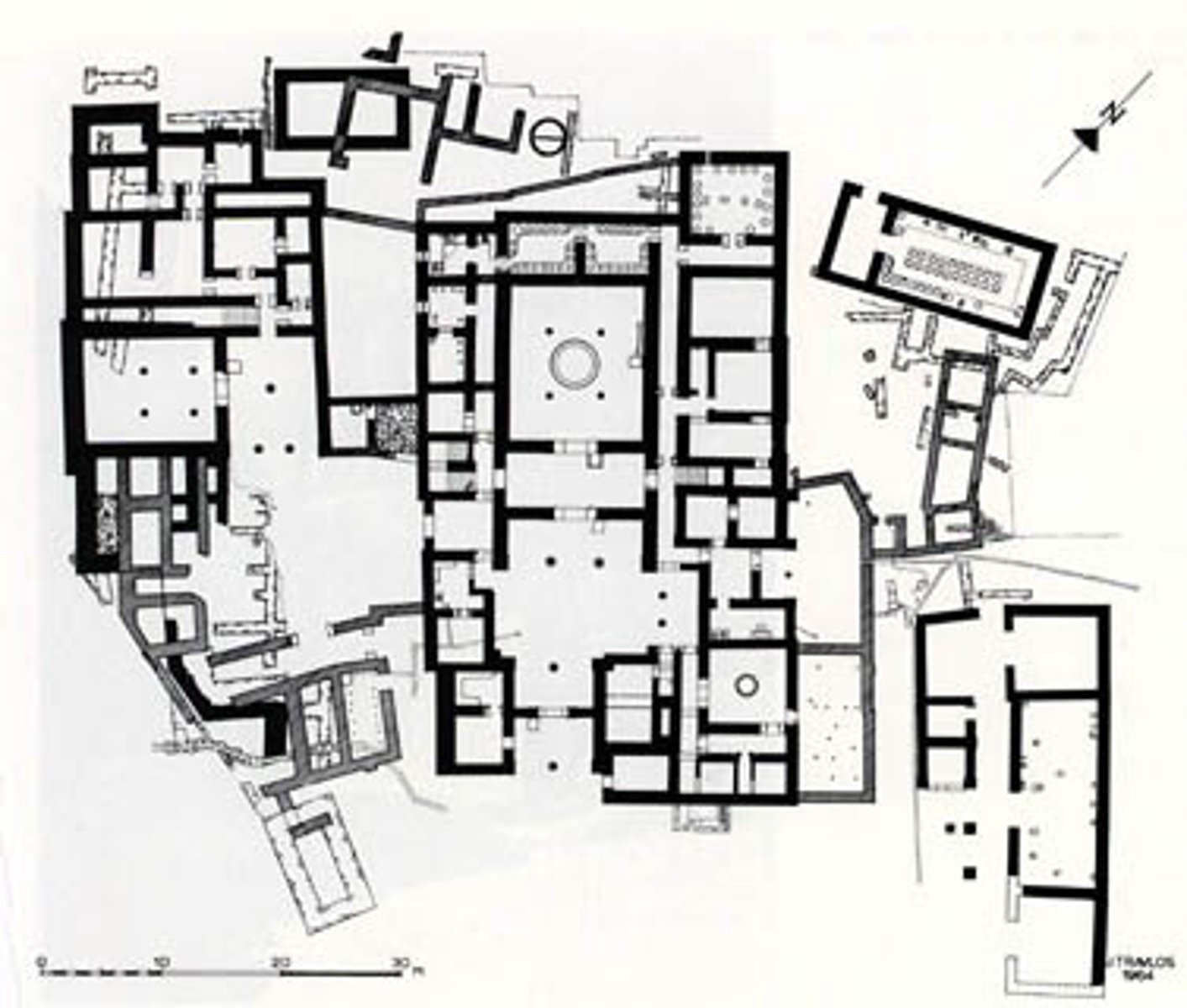
Marine Style Vessels
Ceramic objects from the Late Bronze Age (ca. 1500 BCE); decorated with sea life (octopus, fish); hallmark of Minoan naturalism; elite ware for trade/storage.
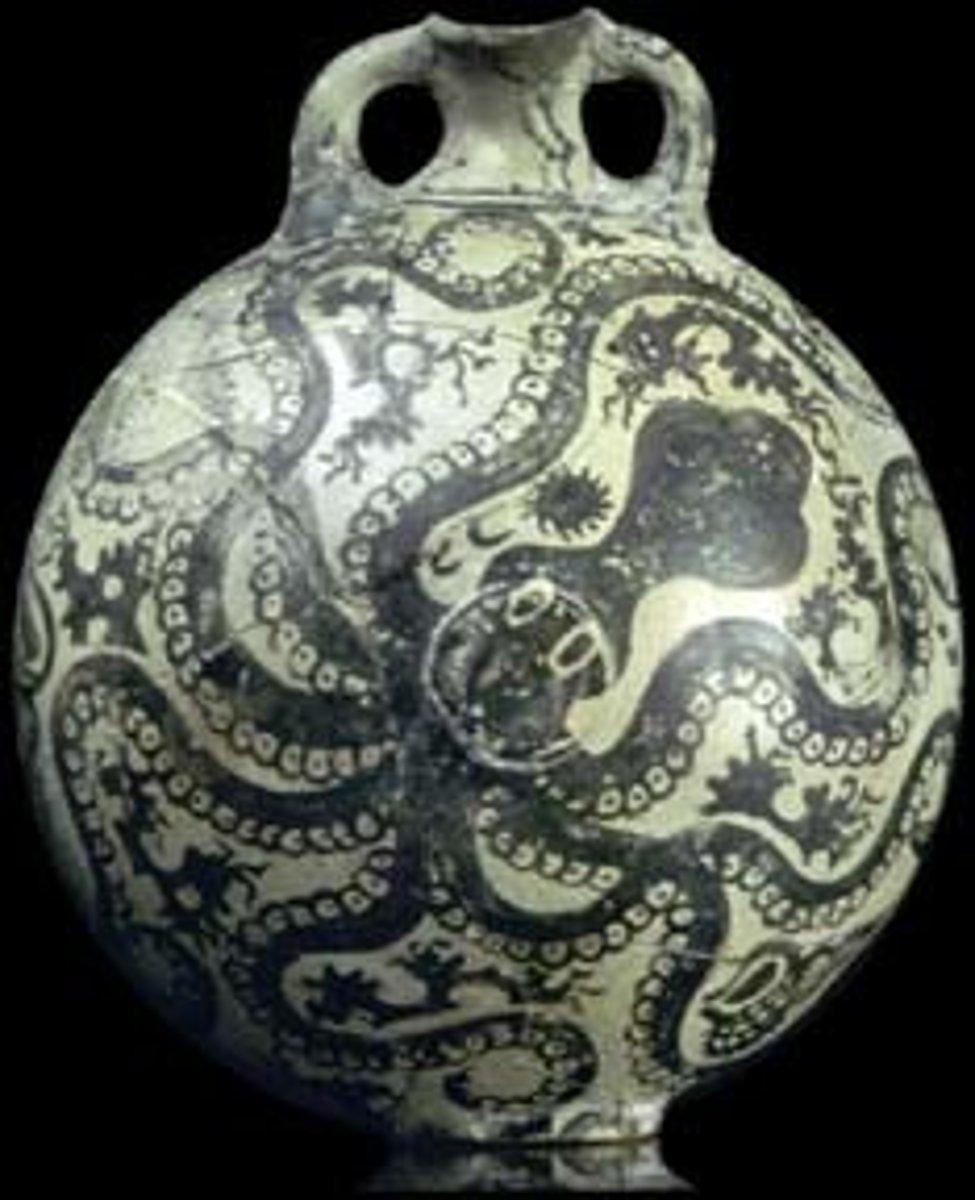
Griffin Warrior Grave
Gold, weaponry, and jewelry from the Late Bronze Age (ca. 1450 BCE); elite male burial at Pylos; grave goods show Minoan-Mycenaean exchange; includes the intricate Combat Agate sealstone.
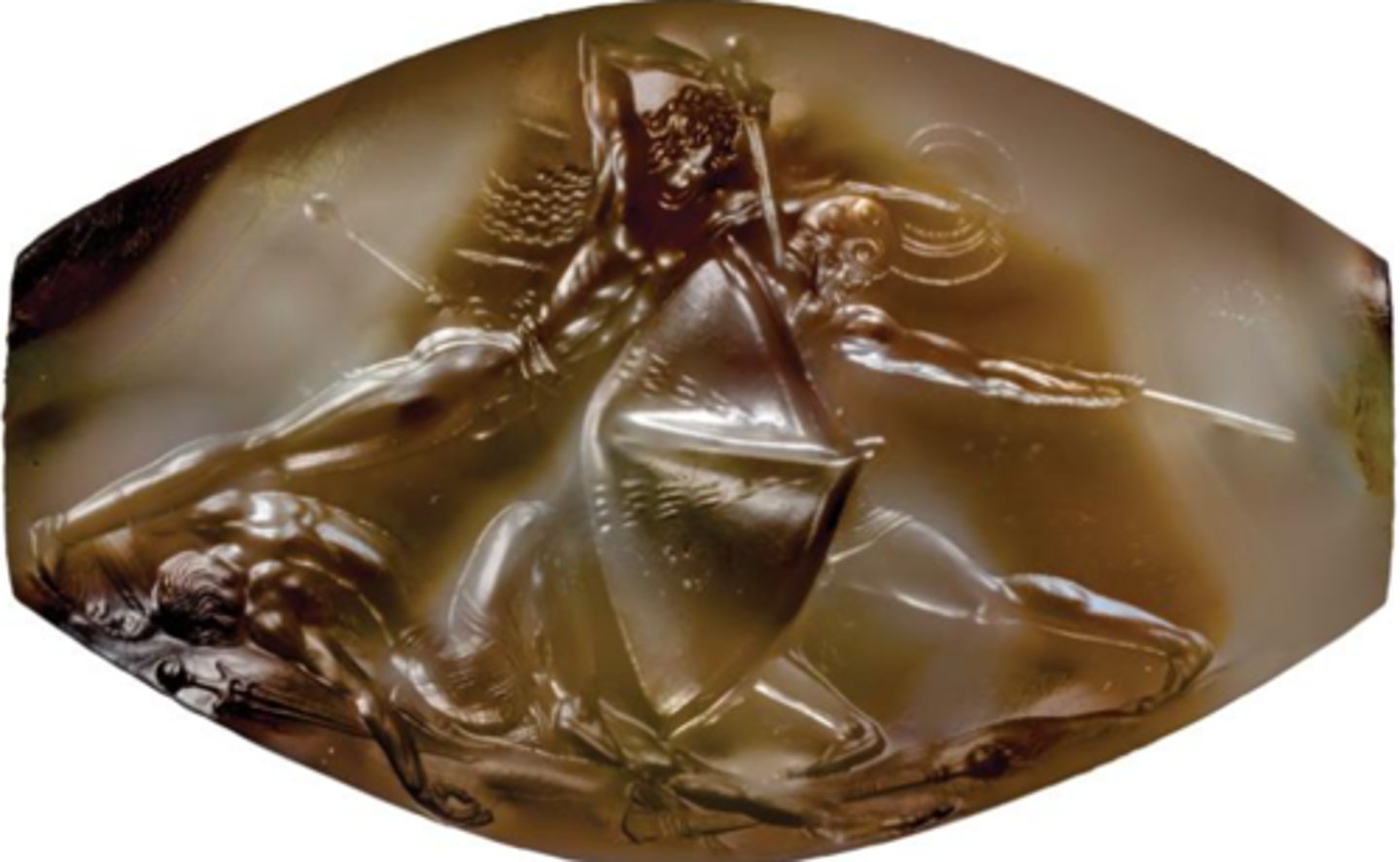
Grave Circle A
Burials + stelai + grave goods from the Late Bronze Age (ca. 1600-1500 BCE); features shaft graves with gold masks and weapons; stelai show chariot warfare; early royal display.
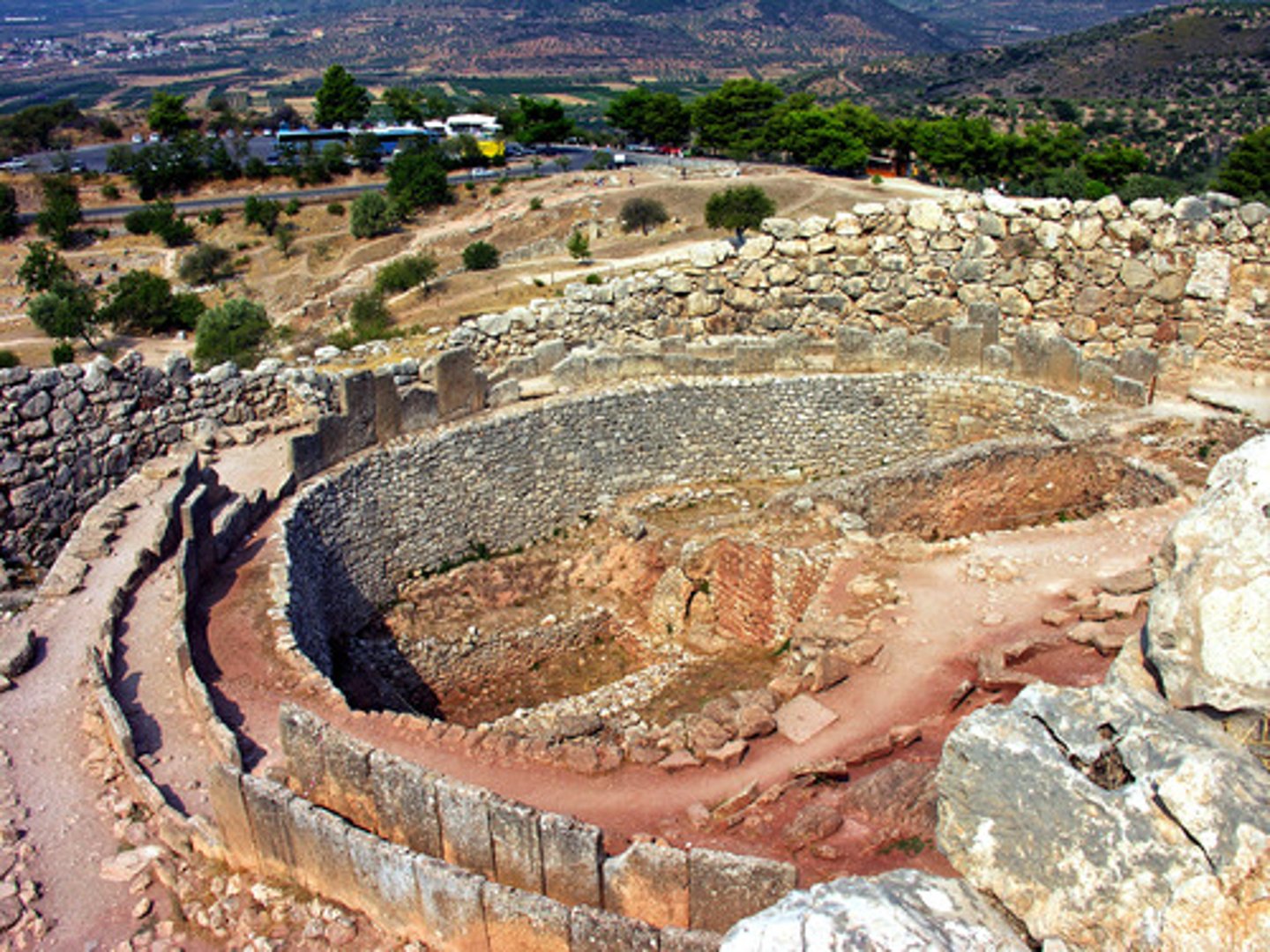
Mask of Agamemnon
Gold funerary mask from the Late Bronze Age (ca. 1600 BCE); misnamed; from Grave Circle A; funerary display of elite male; earliest Mycenaean goldwork.
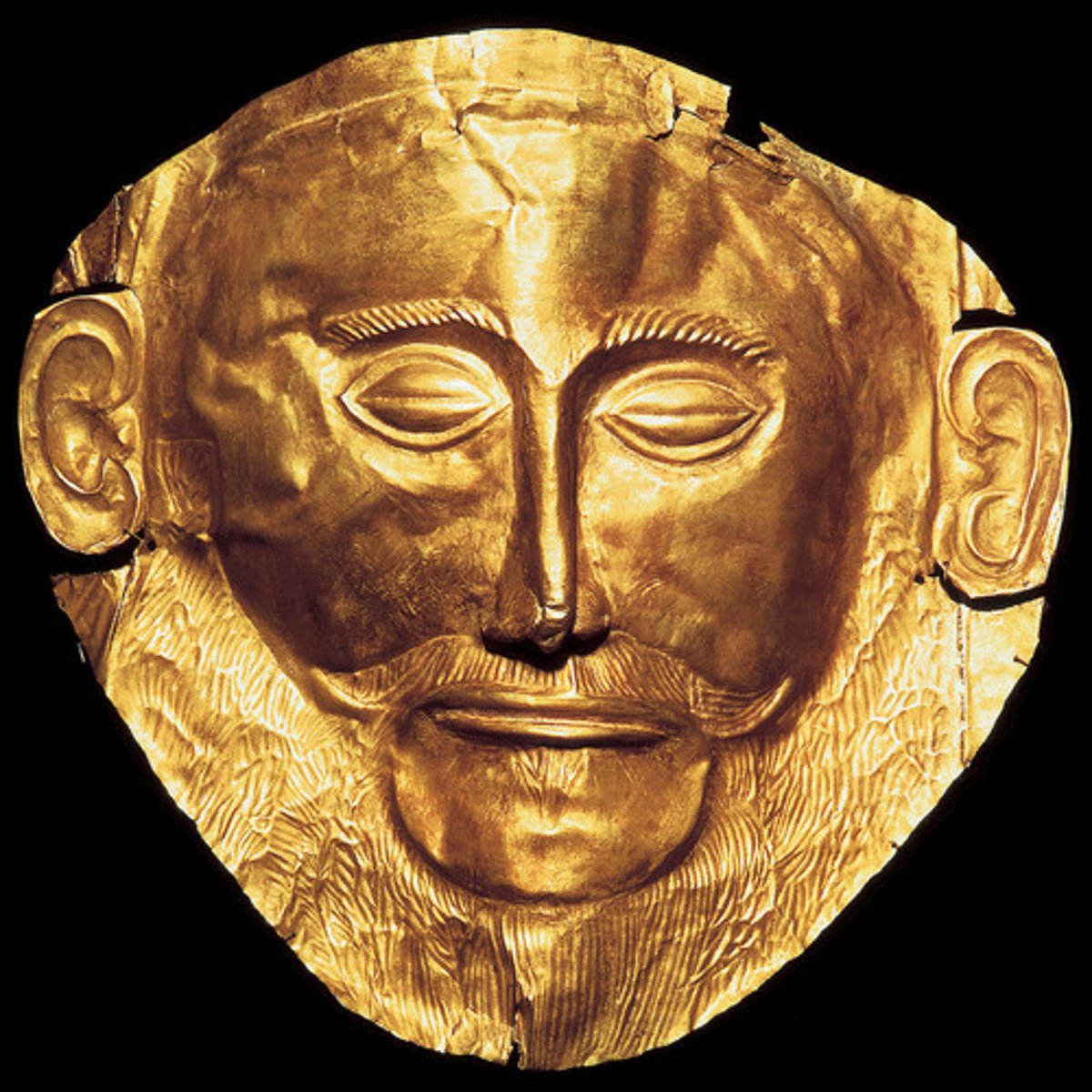
Mycenae Palatial Complex
Fortified stone complex from the Late Bronze Age (ca. 1350-1200 BCE); seat of wanax (king); features megaron, storage, and citadel layout; shows militarized central power.
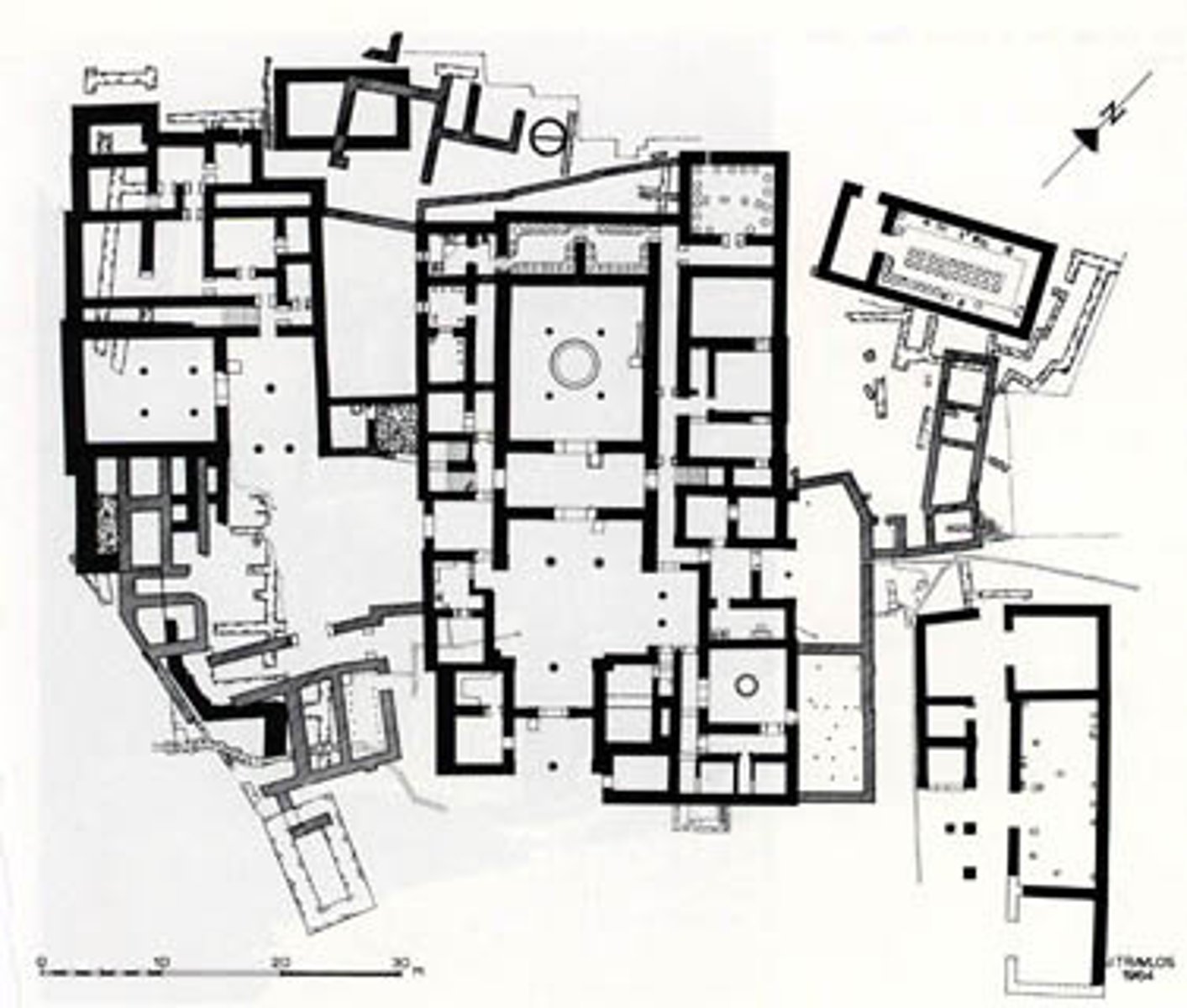
Lion Gate at Mycenae
Stone relief gateway from the Late Bronze Age (ca. 1250 BCE); main entrance to citadel; first monumental sculpture in mainland Greece; lions symbolize royal authority.
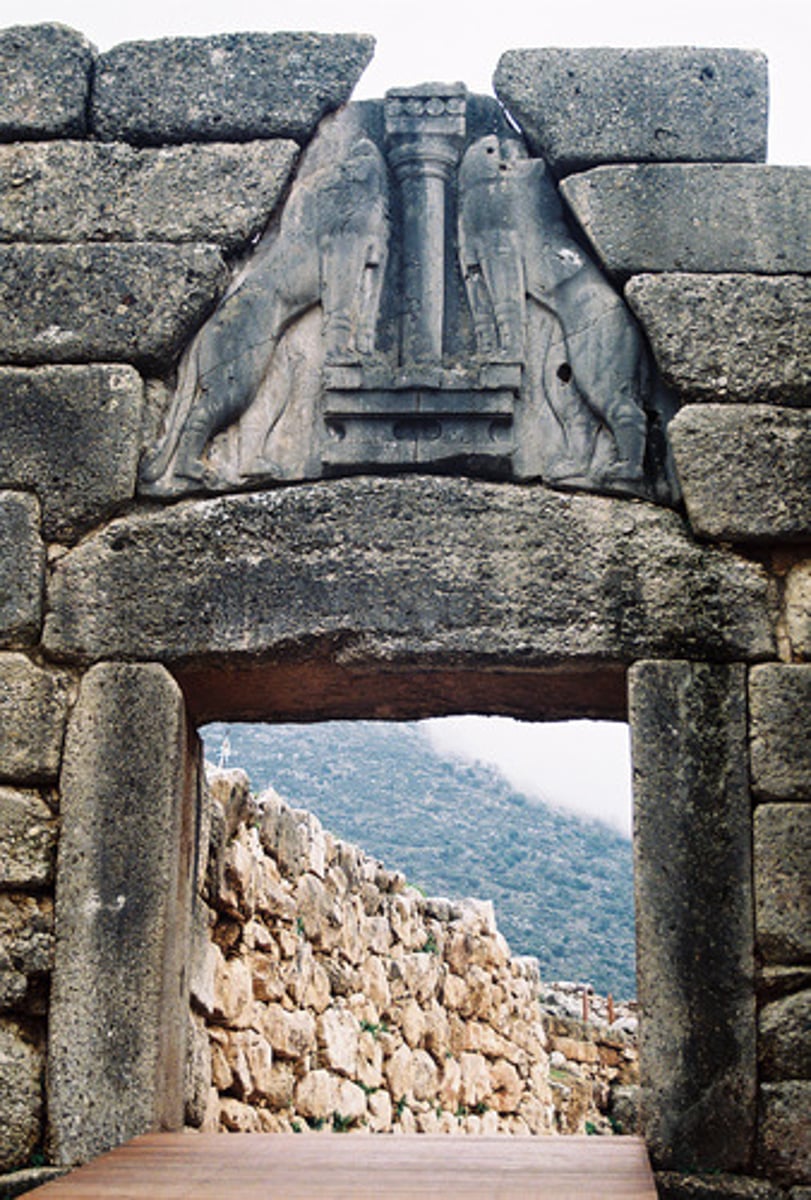
Treasury of Atreus
Corbelled tomb from the Late Bronze Age (ca. 1300 BCE); tholos tomb with monumental corbelled dome; elite burial; showcases sophisticated engineering.
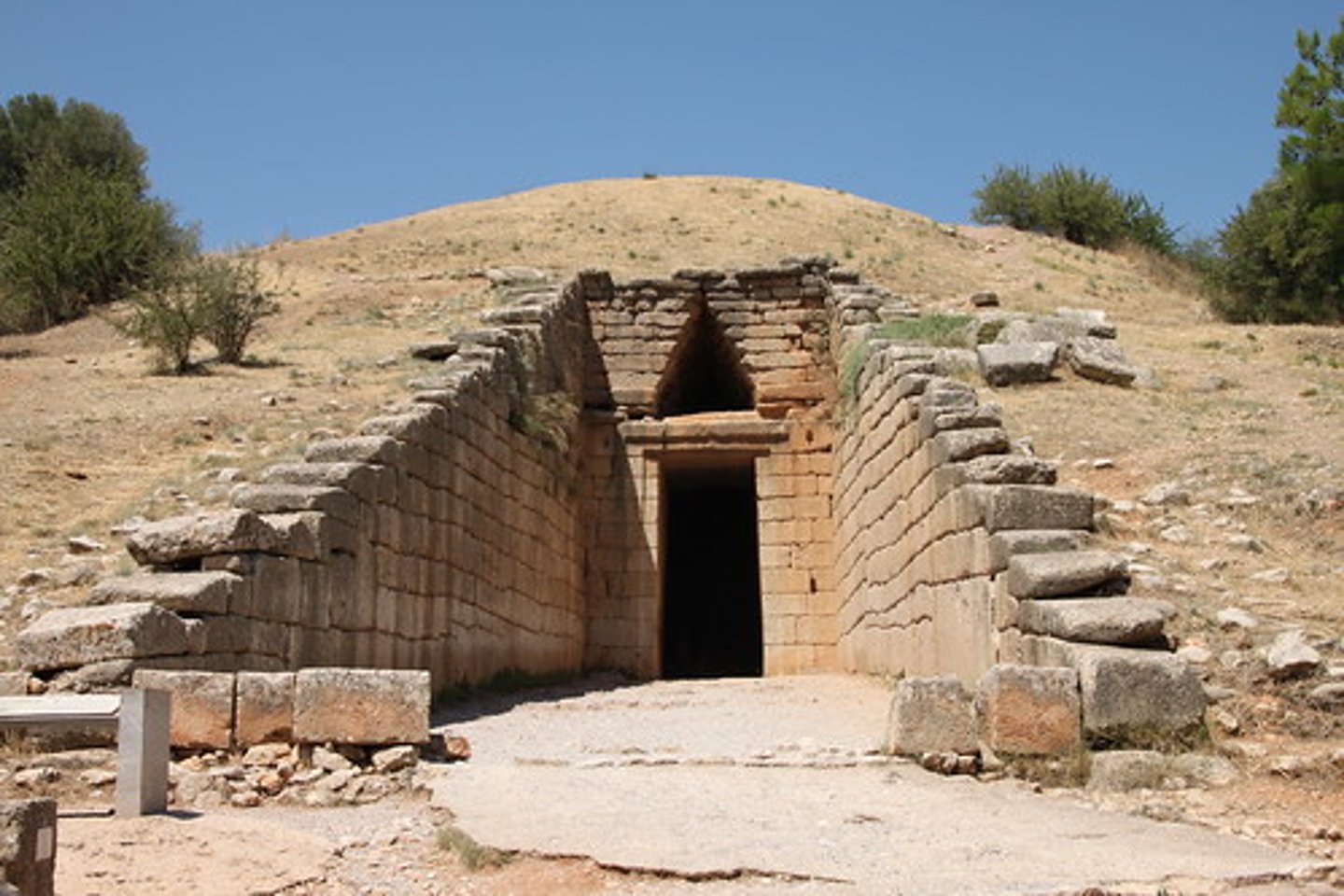
Warrior Vase
Ceramic krater from the Late Bronze Age (ca. 1200 BCE); depicts armed warriors; reflects militarization before Mycenaean collapse.
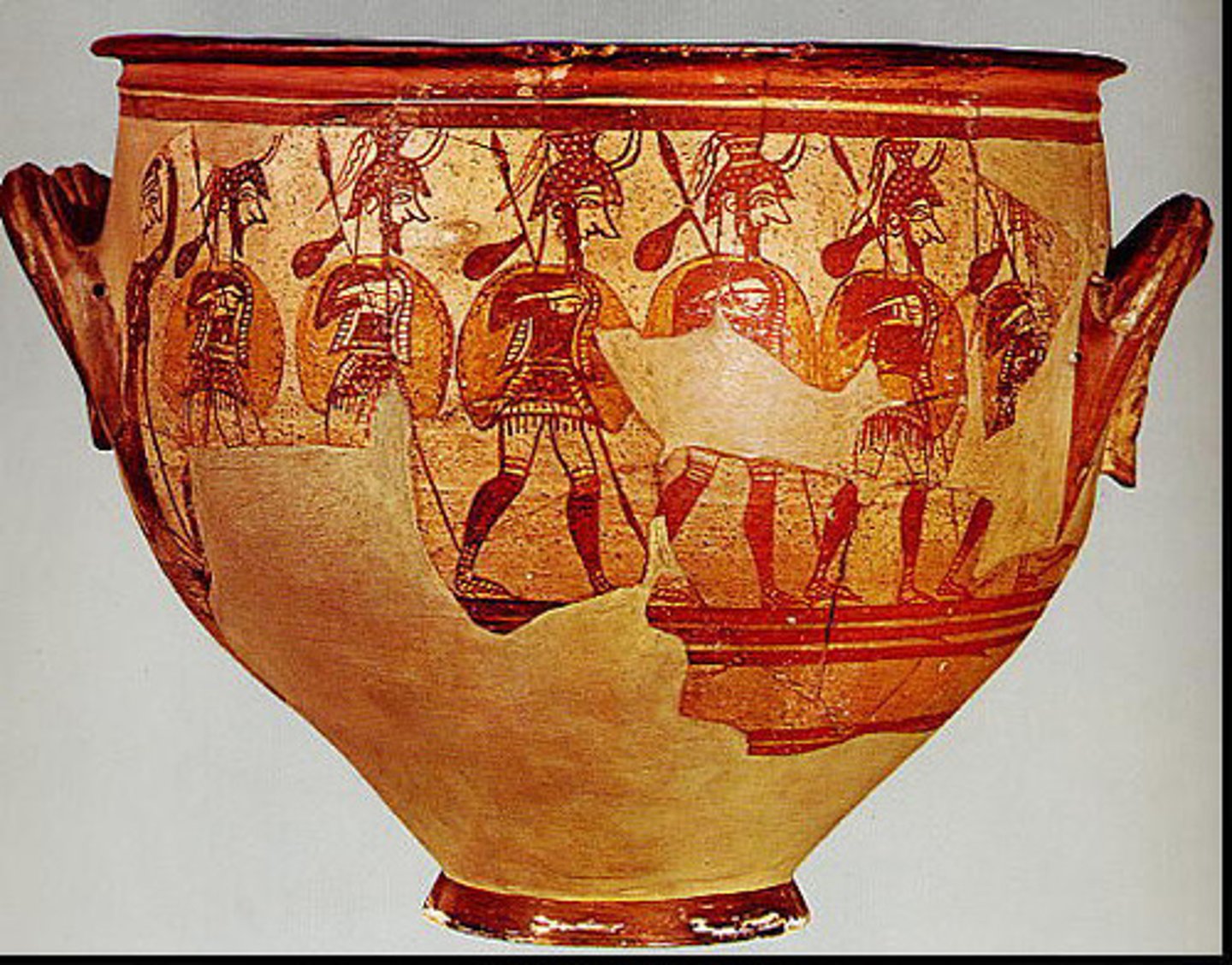
Lefkandi Centaur
Terracotta figurine from the Early Iron Age (ca. 900 BCE); represents a centaur; significant for its unique representation in Greek art.
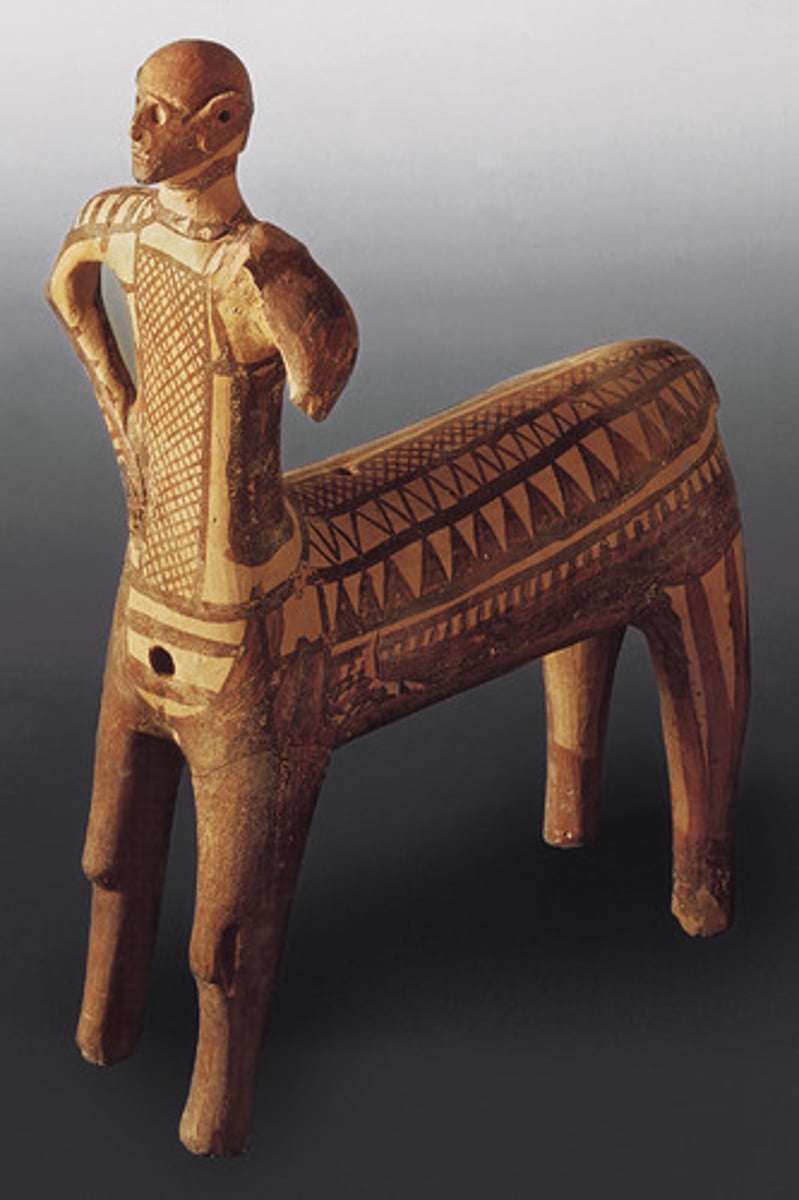
Protogeometric Amphora
Ceramic vessel from the Early Geometric period (ca. 1000-900 BCE) featuring precise, compass-drawn concentric circles that reflect order and symmetry after the collapse.
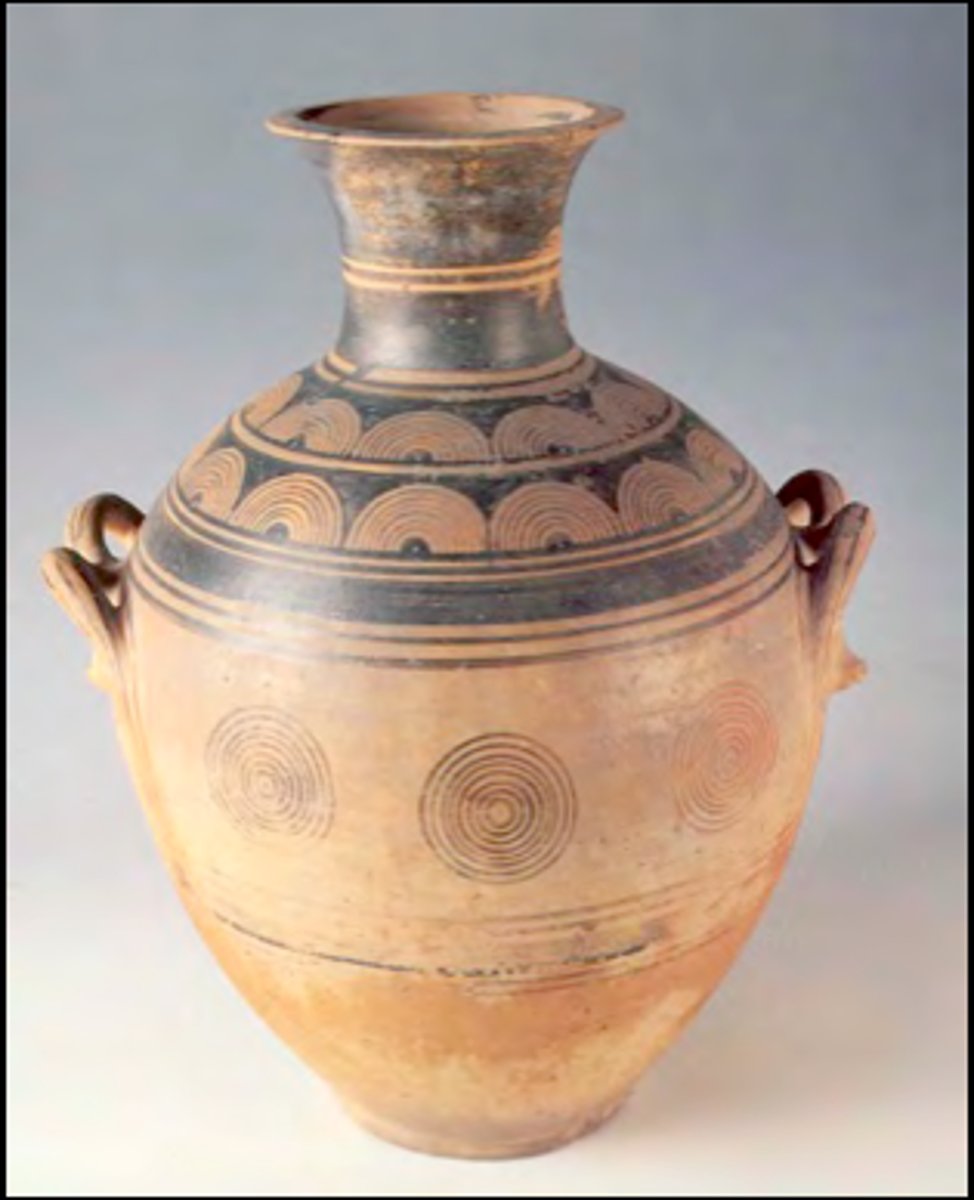
Temple Model ('House' model)
Clay miniature shrine form from the Middle Geometric period (ca. 900-850 BCE) that possibly reflects early temple architecture or hero cults.
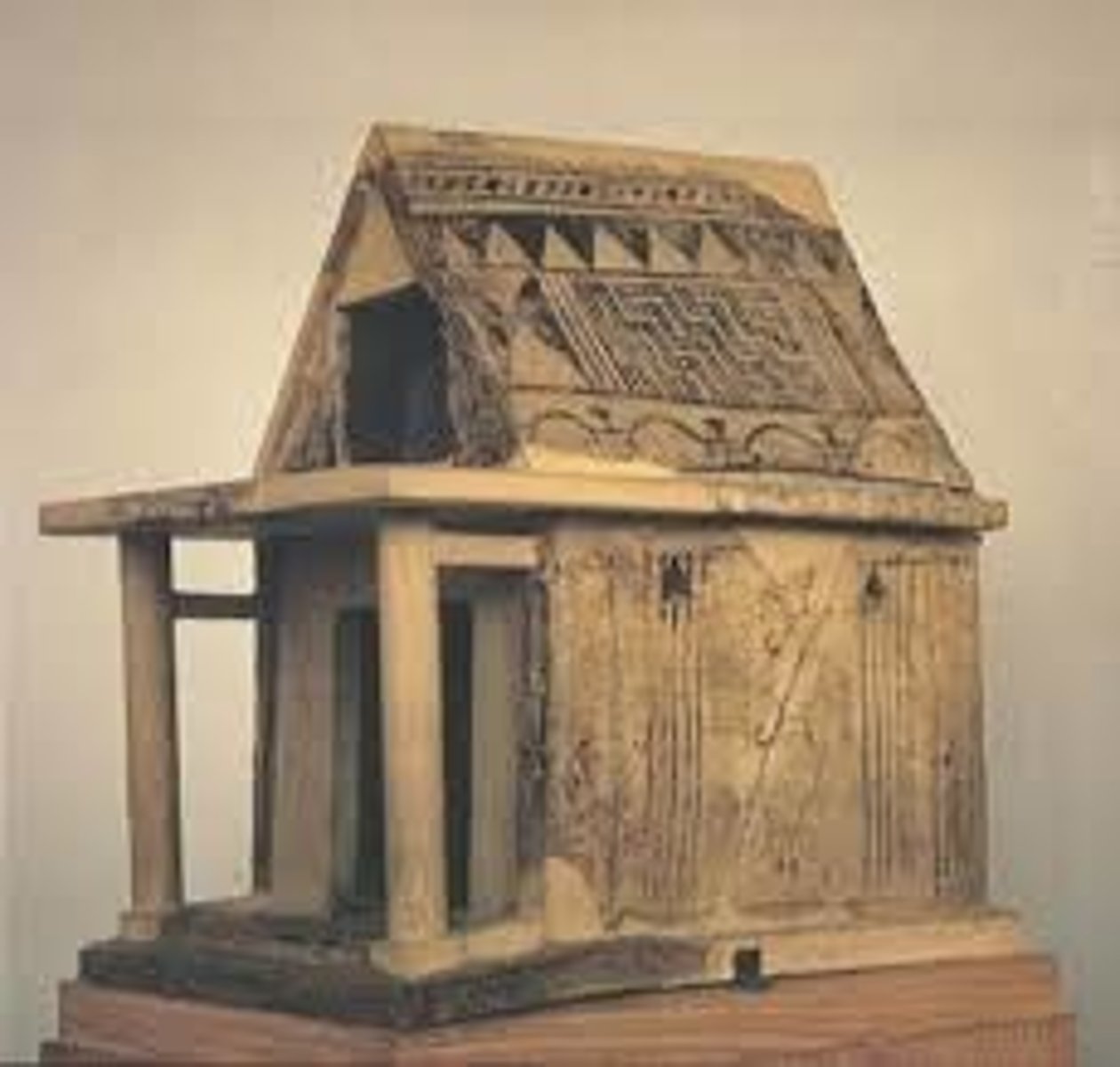
Bronze Tripods / Cauldrons
Bronze objects from the Middle Geometric period (ca. 900-800 BCE) that served as votive offerings at sanctuaries, reflecting the rise of elite gift-giving and Eastern artistic influence.
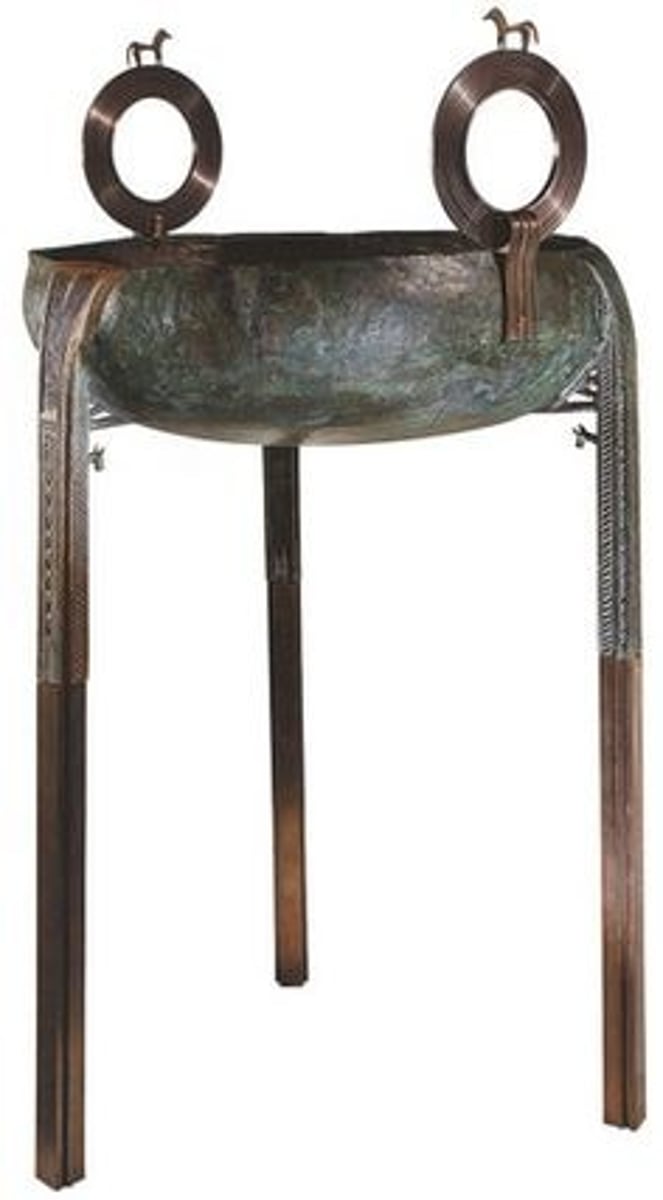
Dipylon Amphora
Ceramic funerary vase from the Late Geometric period (ca. 750 BCE) that served as a large grave marker for a female burial, featuring meander patterns and a prothesis scene.
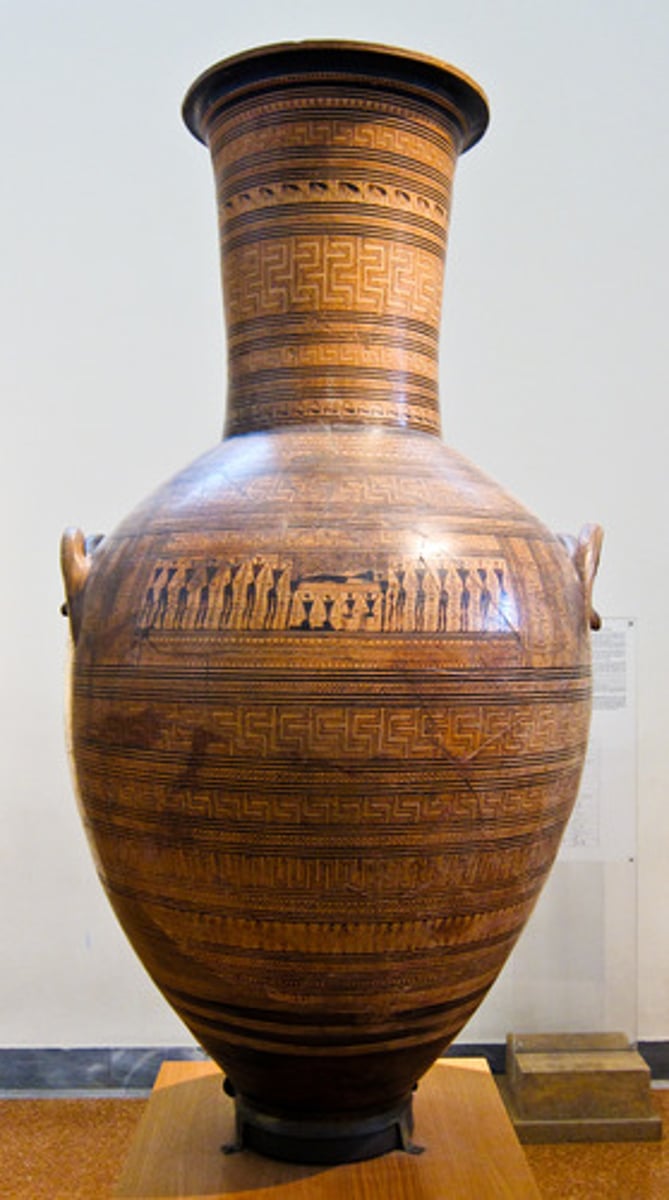
Dipylon Krater
Ceramic funerary vase from the Late Geometric period (ca. 750 BCE) that commemorates a male burial and features an ekphora scene depicting a funeral procession.
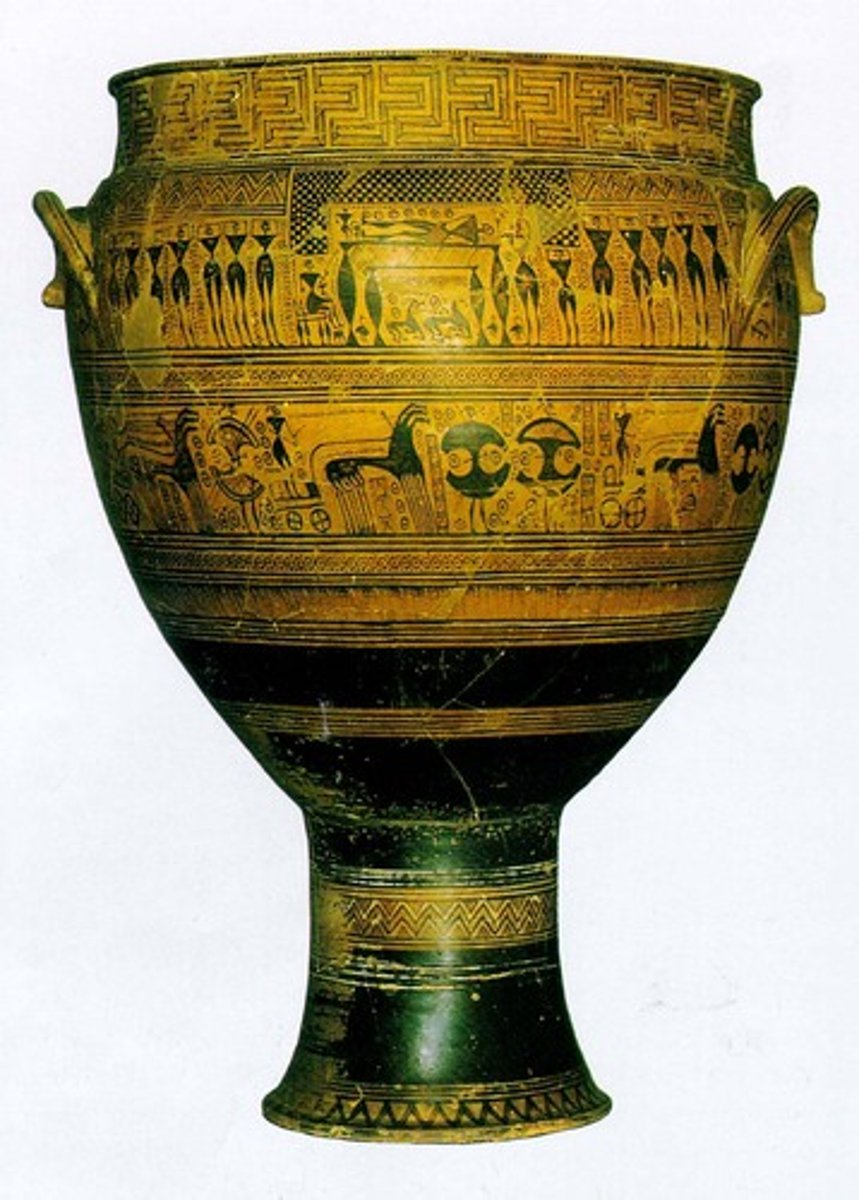
Analatos Painter Amphora
Painted ceramic vessel from the Late Geometric period (ca. 700 BCE) that is a transitional piece featuring both geometric and figural scenes, marking an early Attic move toward narrative.
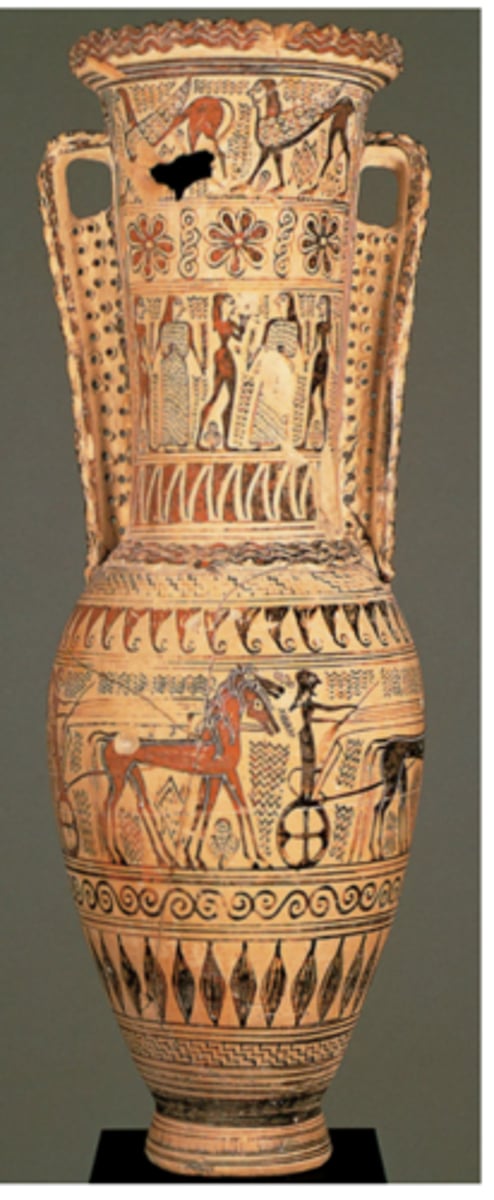
Macmillan AryballosMacmillan Aryballos
Miniature ceramic flask from the Late Geometric period (ca. 650 BCE) that is Protocorinthian in style, featuring intricate mini painting and used for perfume or oil.
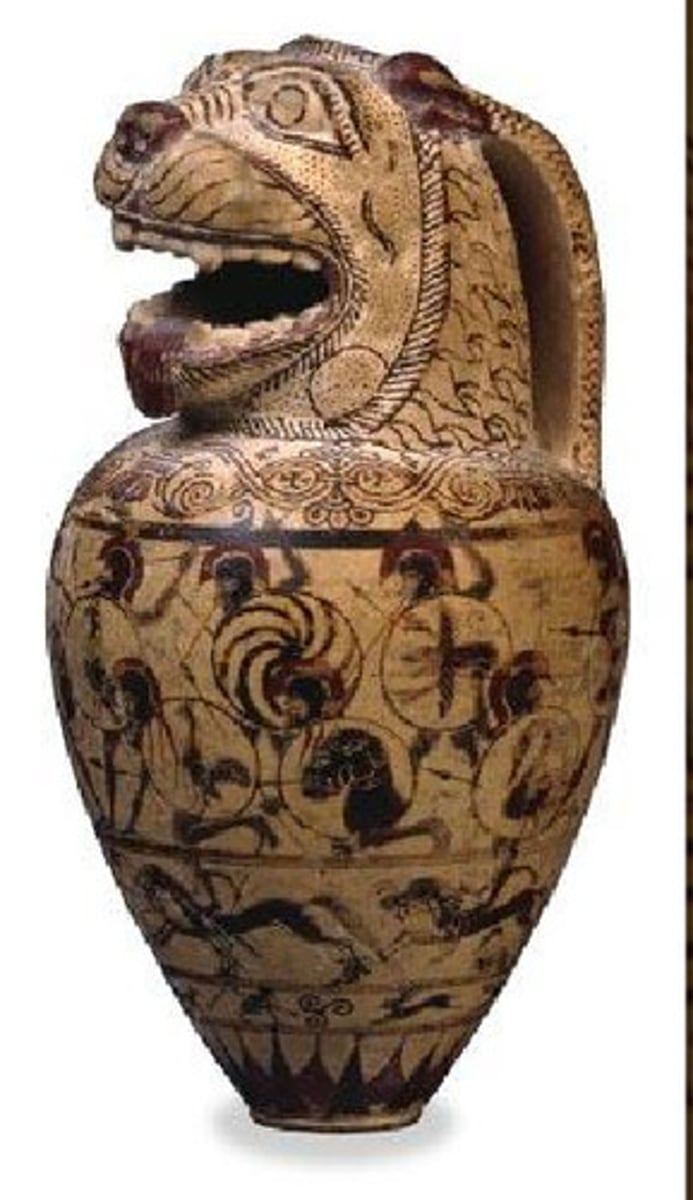
Chigi Vase
Ceramic olpe from the Late Geometric / Orientalizing period (ca. 650 BCE) depicting hoplite warfare and myth scenes, representing early narrative composition.
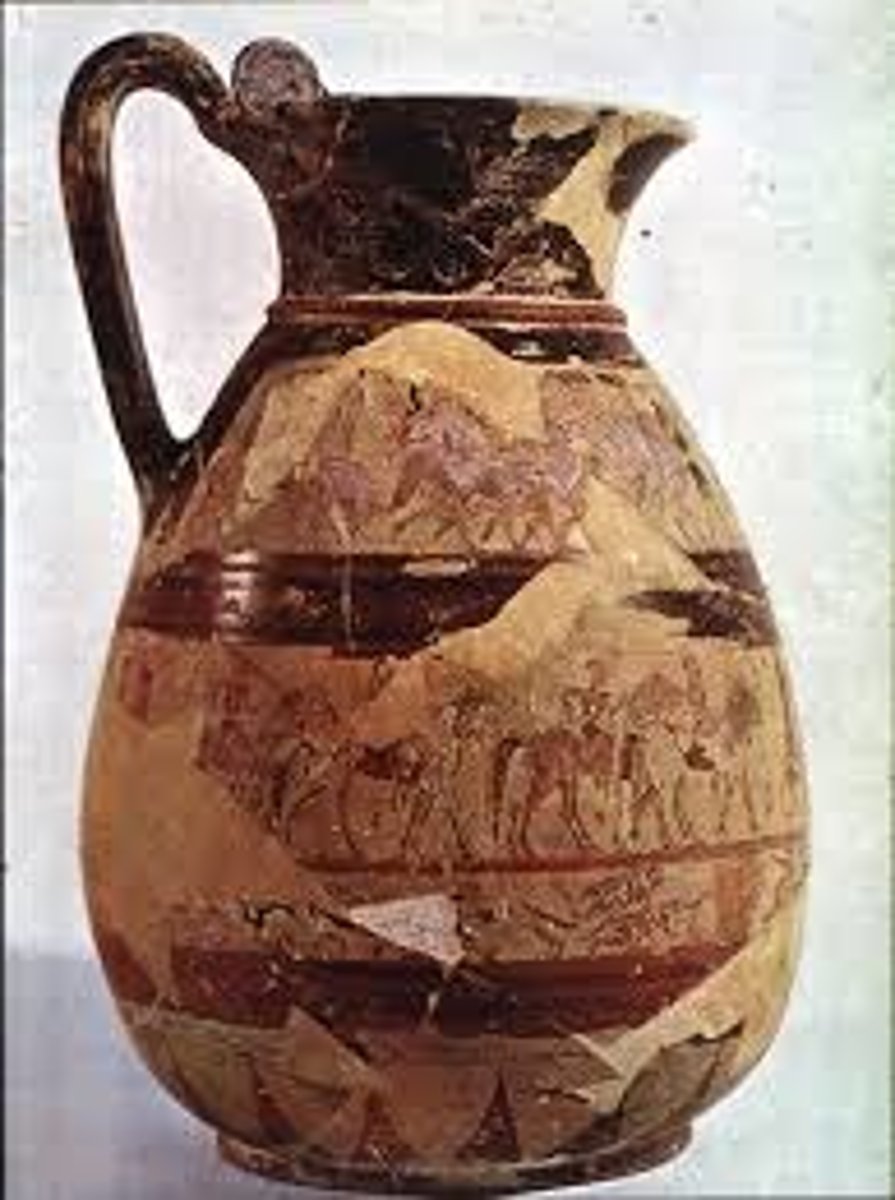
Eleusis Amphora
Painted ceramic vessel from the Late Geometric / Orientalizing period (ca. 670 BCE) that depicts scenes from Greek mythology, including Odysseus & Polyphemus and Perseus & Medusa.
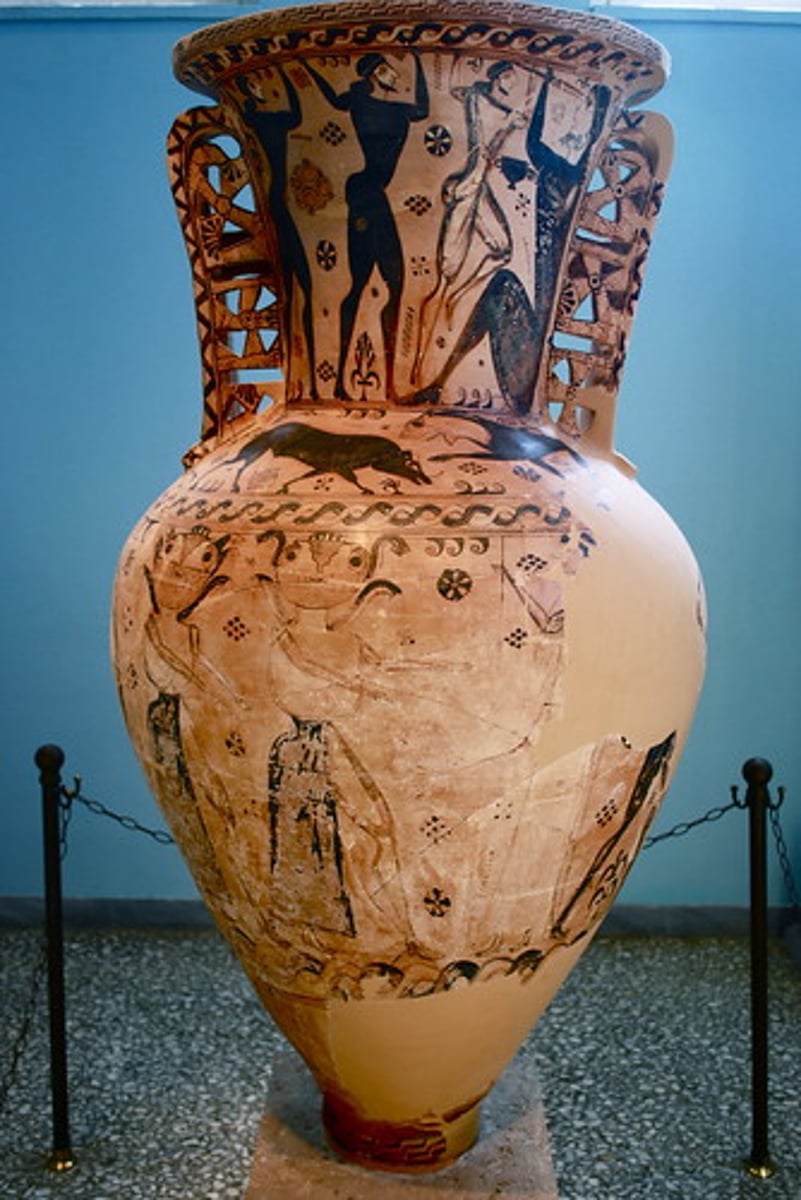
François Vase
Volute krater (ceramic) from the Late Geometric / Archaic period (ca. 570 BCE) featuring over 200 mythological figures, representing the pinnacle of Attic black-figure narrative art.
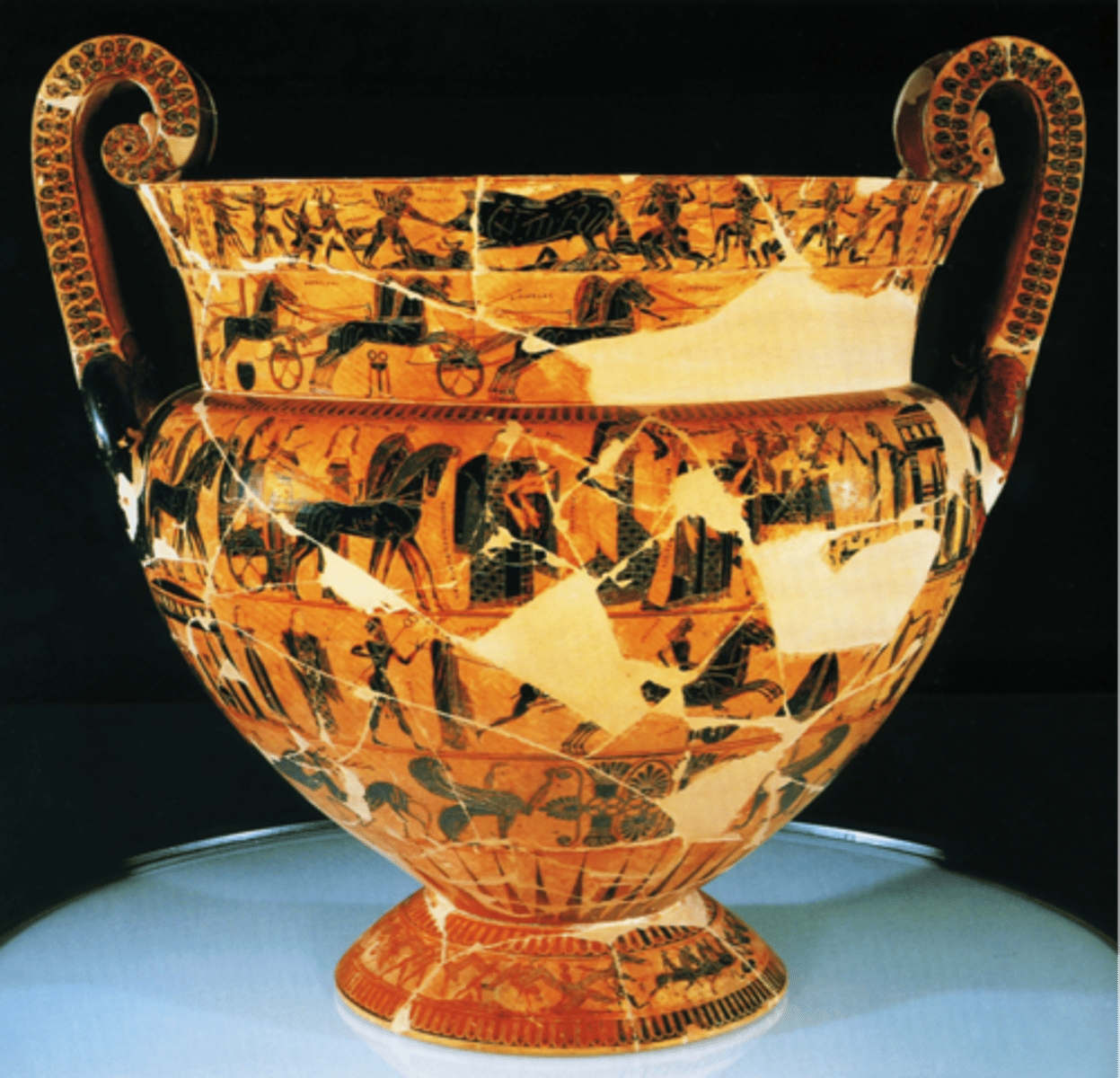
Exekias Kylix
Drinking cup from the Archaic period (ca. 540 BCE) featuring an interior scene of Dionysus that conveys psychological calm and elegant composition.
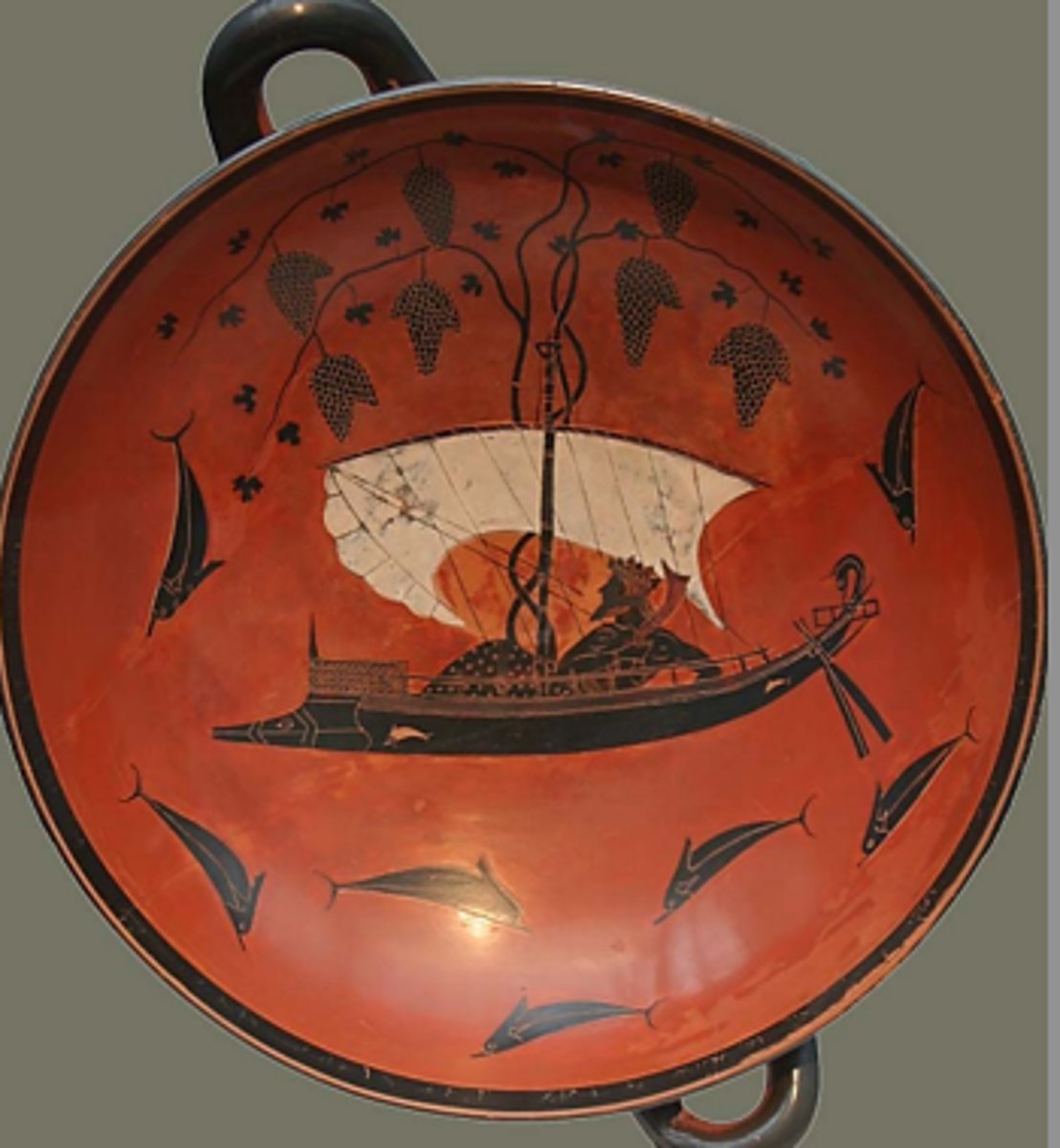
Exekias Amphora (Achilles & Ajax)
Amphora from the Archaic period (ca. 540-530 BCE) that is black-figure and captures a narrative frozen at a moment of tension, showcasing emotional depth.
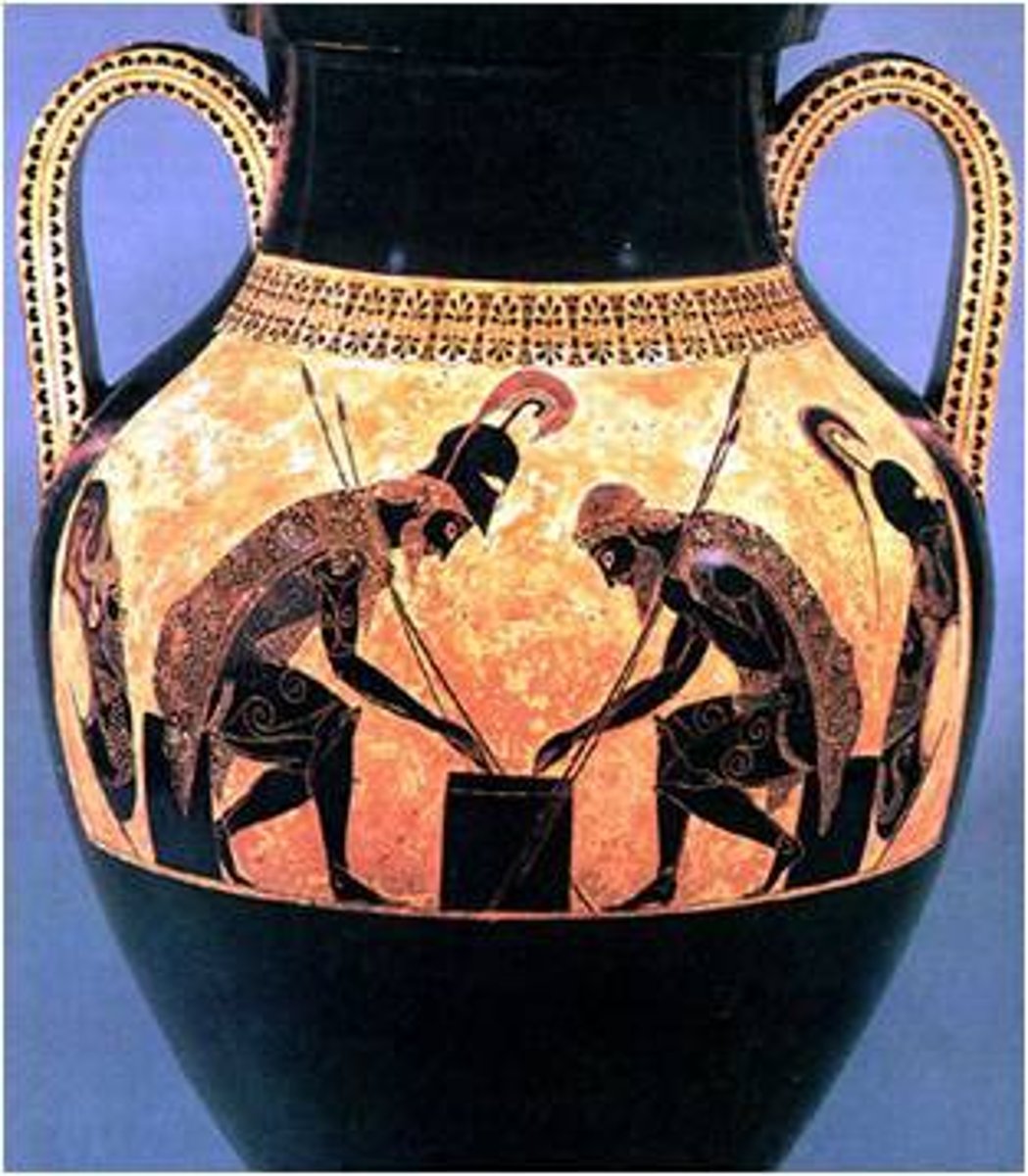
Neolithic-Early Bronze
Characterized by abstract, minimal forms often used for funerary purposes, with simple forms dominating.
Middle Bronze
Period marked by the rise of palatial culture, centralized authority, and elite goods.
Late Bronze
Era known for monumental architecture, militarism, and elite burial practices, representing the peak of Minoan and Mycenaean cultures.
Iron Age
Period following palatial collapse that saw the emergence of local elites and symbolic funerary art, along with hero cults.
Geometric
Characterized by sharp abstraction and the reappearance of human forms, leading to the creation of funerary kraters and a return to narrative.
Orientalizing
Period marked by the growth of Eastern motifs, myth scenes, and intricate miniature details.
Archaic
Era defined by full narrative mastery through black-figure techniques, labeled myth scenes, and the rise of master artists like Exekias.